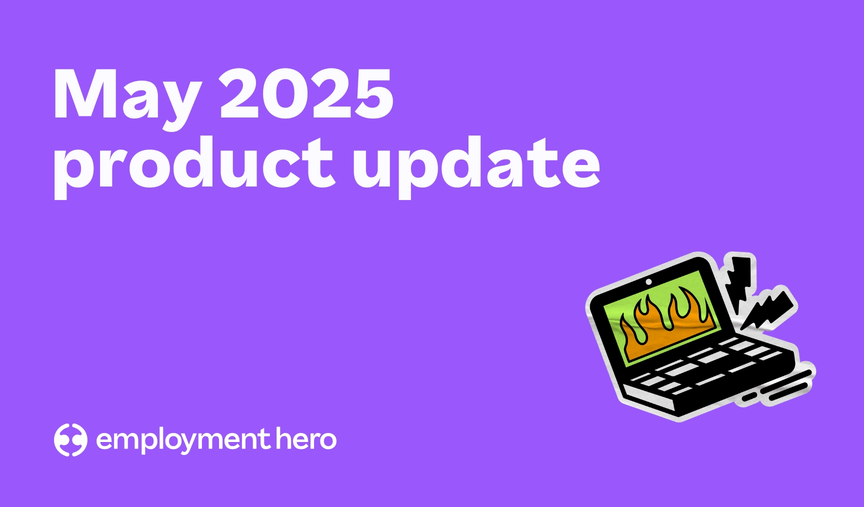Will economic downturn impact Malaysia’s job market in 2023?
While Malaysia is not projected to enter a recession this year, will talent be easier or more difficult to find and attract in this economic downturn? Let’s find out.

Like many other markets, Malaysia is looking at slower economic growth this year.
A recession impacts SMEs in many different ways. As an employer in Malaysia, you’re no doubt concerned about how this will also affect your labour and business costs.
How will it affect the Malaysian job market in particular? Will talent be easier or more difficult to find and attract? How can you better navigate hiring in an uncertain economic climate?
Here’s everything you need to know to prepare your business for a bumpy road ahead.
Was Malaysia affected by the global financial crisis in 2008?
Malaysia was not spared from the effects of the global financial crisis (GFC) in 2008.
Share prices in Malaysia fell sharply in the aftermath of the crisis (by 20% between 2007 and 2009), although the magnitude of the collapse was far less than in the Asian Financial Crisis (AFC) (by 53% between 1996 and 1998). The domestic economy also experienced the full impact of the global recession in the first quarter of 2009, declining by 6.2%.
Thankfully though, due to ample liquidity in the financial system, a sound banking system, and its strong reserve position, Malaysia’s financial markets were able to withstand the global economic shock. Financial sector reforms undertaken after the AFC further increased the resilience of Malaysia’s financial sector. Additionally, Malaysia had little exposure to subprime-related assets and affected counterparties, which further mitigated the risks.
However, Malaysia’s trade industry in particular was badly hit by the GFC — total earnings from merchandise exports recorded a 9.5% contraction in 2009 compared to the previous year. Manufacturing exports also contracted by 19.2%, accounting for nearly 55% of the total contraction in export earnings.
Thankfully, through accelerated implementation of fiscal stimulus measures by the Bank Negara Malaysia (BNM), the Malaysian economy stabilised in the second quarter of 2009, and subsequently recovered in the second half of the year.
The economy resumed growth momentum in the fourth quarter, growing by 4.4% — which resulted in the economy contracting by only 1.7% in 2009. Continued increase in domestic demand and external demand led to strong economic growth of 10.1% in the first quarter of 2010.
Is Malaysia due for a recession in 2023?
There has been a lot of chatter on whether Malaysia can withstand a global economic shock, as global recession alarm bells have started ringing. The International Monetary Fund (IMF) and World Bank, reputable investment bankers on Wall Street, and central banks worldwide have begun to warn about a sharp economic downturn in 2023.
According to the governor of Bank Negara Malaysia (BNM) however, Malaysia is not expected to enter a recession in 2023. Nevertheless, headline and core inflation are expected to remain elevated amid demand and cost pressures, as well as potential changes to domestic policy measures.
The Malaysian economy is forecasted to expand by 4% to 5% in 2023 by BNM. This is echoed by Maybank Investment Bank (MIB), who believes Malaysia is unlikely to fall into a recession as local monetary policy remains non-restrictive, while consumer spending is cushioned by excess savings built up over the last two years.
The financial performance of corporations and businesses remains healthy, and the public continues to spend, while indicators such as retail and car sales have exceeded pre-pandemic levels — as noted by BNM governor Nor Shamsiah. The banking system also remains resilient, and financing growth remains supportive of economic activity.
MIB’s chief economist, Suhaimi Ilias, has also similarly said that although consumer spending growth is estimated to slow down to around 6% in 2023 versus 11.5% in 2022, consumers are expected to tap into their excess savings built up during the pandemic years.
Malaysia’s external position also remains manageable — the depreciation of the ringgit versus the USD has led to a higher value of foreign currency assets. Risks from foreign currency external debt are also largely contained, as about 68% of debts are either subject to prudential safeguards or are on flexible terms.
Overall, Malaysia is set to experience moderate economic growth in 2023. However, that doesn’t mean it’s completely insulated from an external economic shock — its economic growth depends on whether the US encounters a severe recession and can contain rising inflation with the current interest rate hikes; as well as whether the Russia-Ukraine war will escalate or end.
How will a recession in Malaysia affect employers and recruiters?

1. Employee layoffs
As small and medium-sized businesses see reduced cash flow and increased operating costs, budget cuts will likely be on the cards. Unfortunately, a hiring freeze and job losses can sometimes be a key part of those cuts, and it’s something that business owners will have to consider as a recession takes hold. Even tech giants like Amazon and Salesforce have begun doing so.
That’s not to say that redundancy has to be the first thought. Just like during the pandemic, there are alternatives to redundancy such as reduced hours, job sharing or stand down periods. Just ensure you’re meeting compliance requirements and that you’ve formalised any changes in writing. Where possible, turn to redundancy only as a last resort — employees are struggling with the cost of living crisis too.
2. More competition for top talent
In a recession, employees are more likely to stay put at their current jobs to ensure stability and a fixed income. They know it’s harder to find something new, and hence will only entertain offers from companies that are a step up from their current position and pay grade.
Because businesses are forced to work with an extremely lean workforce to cut costs — there will be more competition for top talent as good employees will be high in demand. Employers and recruiters will have to be even more strategic and intentional in the way they approach candidates and rethink their employer brand strategy.
3. Employee retention is crucial
You definitely don’t want to be losing your best talent in the midst of a recession — according to Gallup, replacing an employee can cost up to 1.5 to 2 times their annual salary. Retaining existing employees costs significantly less than having to recruit and train new ones.
Especially in times of a recession, your business probably needs all hands on deck — which means you need to focus on employee retention to ensure your business keeps running smoothly. If you’re running a remote-first business, we’ve also got 11 innovative strategies you can use right here.
4. Pivot to short-term hires
When faced with an economic downturn, it’s important for businesses to be flexible. If the pandemic taught us anything, it’s the fact that the most agile and adaptable businesses survived. As such, in a bid to cut costs, most companies will likely be looking for short-term contractors in the labour market, to avoid high overhead costs associated with full-timers.
For recruiters, that means counselling candidates to be more open to contingent positions, by highlighting key benefits such as increased flexibility. In some cases, contract work is also the best and only option to stay in the labour market.
5. From recruiter to advisor
In the midst of a global recession, recruiters will likely take on more advisory roles as both candidates and clients look for advice in navigating the talent market. Candidates will be concerned about salaries, job security, and whether their resumes can be polished to attract better opportunities. Clients on the other hand, will require guidance on staffing and laying off employees.
Recruiters play a crucial role in an uncertain job market because of their unique perspective — with access to both the candidates and clients, they understand what companies are looking for, where the best talent is, and what it will take to get the top talent on board. This knowledge is valuable for any economic climate, but more so in times of economic slowdown when companies are running on a lean number of staff.
Will Malaysia’s unemployment rate rise or fall in 2023?
Malaysia’s unemployment rate is predicted to return to pre-pandemic levels by mid-2023, according to senior economist Julia Goh and economist Loke Siew Ting of UOB Global Economics & Market Research.
The Department of Statistics Malaysia announced that the country’s unemployment rate reached a new pandemic low of 3.7% (620,700 people) in July 2022 — and the number of employed people has continued to increase by 0.3% month-on-month. Thanks to the full reopening of borders and resumption of economic and social activities.
As such, the forecast for the 2023 unemployment rate in Malaysia has been revised downwards to 3.2% from 3.5% — lower than the unemployment rate which was 3.3% in February 2020, just before the nationwide lockdown was implemented.
Will staff shortages improve in 2023?
Even though Malaysia’s economic indicators are all improving — showing a positive trend, a shortage of workers in some industries will persist in 2023, according to the Malaysian Employers Federation (MEF).
MEF president Datuk Dr Syed Hussain Syed Husman said while the government was doing enough to help employers cope, a shortage of workers remains, because workers now have the choice of where they want to work.
He also called on the government to assist small and medium enterprises (SMEs) to automate, by providing them with funds and giving them time. Whilst it is almost impossible to replace foreign workers with the local workforce, Malaysian employers can reduce their reliance on foreign labour by automating different aspects of their business through digital transformation.
According to the Association of Employment Agencies, Malaysia still lacks approximately one million foreign workers needed to sustain various sectors’ needs post-pandemic this year, especially in sectors like construction, agriculture, services and manufacturing, which are crucial to jumpstart the country’s economy. The retail sector is also struggling to hire adequate staff. It remains to be seen what the government will do in providing targeted support to ease the problem.
Tips for navigating hiring in an uncertain economic climate

The future may seem bleak with so many macroeconomic factors beyond your control, but taking advantage of hiring during an uncertain economic climate can make your business better prepared for the future.
When planning your strategy for recruitment during an economic downturn, think about how you can build resilience in your workforce. Where do you envision your company to be three to five years down the road after a recession? This will help to shape your hiring process, and ensure that you’re hiring the right talent you need.
1. Conduct a skills gap analysis
When you’re forced to operate with a lean team to keep costs low, it’s essential to run a skills gap analysis so you can identify skill sets your workforce needs, but doesn’t have yet. It helps to guide your hiring priorities, identify opportunities for training and development, and also shows you where you can possibly allocate funding to, such as new tech tools and partnerships.
A skills gap analysis also enables you to gain deeper insight into the skills your current workforce possesses, and what skills your company will need in the future. With this knowledge, your recruitment team can create more accurate and specific job descriptions, reach out to A-grade candidates, and bring in new employees that will enable you to attain your long term goals.
2. Optimise your recruiting processes
Recruitment and hiring can be immensely time-consuming and challenging, especially in difficult times when you might have more applicants than usual for a job opening. Even for the most experienced recruiters and hiring managers, it’s a long, winding road to finding the perfect candidate for an open role. It can also be a pretty costly situation if done poorly.
This can easily overwhelm your recruitment team — you can avoid this by preparing and adding resources that allow you to hire at scale. Optimise your hiring process so it’s efficient, fast, and most importantly, cost-effective. The lower your cost per hire, the higher the chances your business will weather this economic downturn.
Automate your recruitment process as much as possible, so once you’re ready to hire you can hit the ground running. Utilise tools like an Applicant Tracking System (ATS) to streamline the hiring process — it doesn’t just make things easier for hiring managers, it also makes the experience smoother for job seekers too.
3. Recruit remotely
If you can’t find great talent in your area, you might want to consider looking further abroad. Many business owners think they don’t have the resources to hire during a recession — but hiring remotely can be a cost-effective alternative. Remote workers bring a diversity of skills to the table, may cost less to hire, and enable you to grow your business with the skills you need without being hampered by geographical boundaries.
But you might be wondering… How can small and medium-sized businesses access global talent without the HR resources of large companies? A Professional Employer Organisation (PEO) is the answer.
A PEO is an HR solution that manages payroll, benefits, remuneration, administration, employment taxes, HR guidance and more, in accordance with local government laws. This means that you can now choose talent based on experience, and leave the legal paperwork to them. Access the best person for your role, no matter where on the planet they live.
We don’t mean to brag, but Employment Hero’s PEO service can give you access to talent in a whopping 54 countries. Here’s what you need to know before hiring your first international employee. Utilising global teams can make your small business more competitive, which is especially needed in these challenging economic times.
4. Continue developing in-house talent
Sourcing candidates for a new position doesn’t necessarily mean you have to hire externally. Why not look at your existing talent and see whether any of them are keen to take on a new challenge?
Training costs are usually more affordable than hiring costs — consider whether your existing employees can be mentored to move into new roles and you might be surprised with what they can achieve. Having extensive knowledge of your brand and company will certainly come in handy as they take on a different role. It also absolves any need in getting them up to speed with the company’s goals, values, and processes.
Preparing your business for economic uncertainties
2023 is certainly proving that it won’t be a walk in the park with the global economic slowdown. Whilst it won’t be nearly as bad as the previous global financial crisis, it’s hard to predict what will happen with global financial markets.
Nevertheless, there are plenty of positives to look toward in Malaysia, with the increase in domestic demand and gradual economic recovery after the pandemic crisis. It’s now up to Prime Minister Anwar’s government to evaluate the global growth prospects and ensure Malaysia’s sustainable economic recovery.
In these trying times, what you can do as a business owner is to remain resilient, and ensure your business is as prepared as possible for the uncertain economic climate. Get on top of what the latest small business innovation trends are, and ensure you’re using all the above tips to navigate hiring effectively.
Employee retention is also a key aspect — don’t forget to communicate with them with urgency, transparency, and empathy, so they are engaged and reassured about their job stability in the midst of this cost of living crisis.
Related Resources
-
 Read more: Product Update: May 2025
Read more: Product Update: May 2025Product Update: May 2025
Follow our May 2025 product update as we share all of the latest and greatest features we’ve released over the…
-
 Read more: Product Update: April 2025
Read more: Product Update: April 2025Product Update: April 2025
Follow our April 2025 product update as we share all of the latest and greatest features we’ve released over the…
-
 Read more: Product Update: March 2025
Read more: Product Update: March 2025Product Update: March 2025
Follow our March 2025 product update as we share all of the latest and greatest features we’ve released over the…









